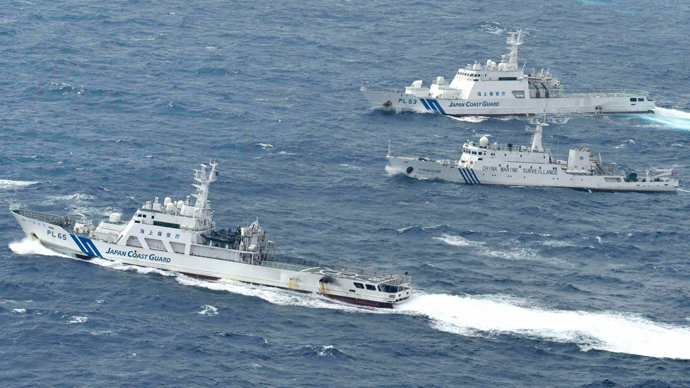
Xi Jinping, China’s new leader, will take over from incumbent Hu Jintao on Thursday. The once-in-a-decade power transition in a country seen as a major challenger to US economic and political supremacy means all eyes are on Beijing.
Among other issues, Xi will likely be forced to react to the US ‘pivot’ towards Asia announced by US President Obama’s administration. China has so far been suspicious of US plans for greater military presence in the region, according to George Koo, founder of International Strategic Alliances and board member of New America Media.
The renewed focus on Asia has been “very effective propaganda for President Obama to sort of announce or reassure the countries in Asia that America has not forgotten Asia and are there to give moral support in some of… bilateral disputes,” Koo told RT.
This could also be a reason why Beijing has been increasing its military budget lately: “I don't think the United States is too concerned about China's increase in military spending… There are still huge gaps between the American and the Chinese capabilities and it's only understandable that the Chinese want to upgrade and modernize their capabilities, but the gap is still enormous,” Steve Tsang, Director of the China Policy Institute at the University of Nottingham told RT.
However, catching up militarily with the US might not be an immediate priority for China at the moment, as it finds itself engaged in a bitter territorial dispute with Japan. The two countries have struggled for the ownership of supposedly oil-rich Diaoyu (Senkaku, in Japanese) Islands.

“China has been very assertive, sometimes even bellicose over the last year when talking about its territorial disputes and they seem to really want to show their strength in terms of talking about these issues,” Beijing-based journalist Shannon Van Sant told RT.
China’s new minister of Foreign Affairs is expected to be Wang Yi, an expert in diplomatic relations with Japan, which could indicate that relations with Japan are of utmost importance to Beijing.
Great expectations
As for domestic issues, people in Beijing expect the new government to deliver on promised reforms. The prevailing sentiment seems to be a hope for more democratization, and more equality.
“A lot of prominent activists, labor reform activists, people in all different walks of life here in China are hoping that this new administration will follow through on… labor camp reform, reform of rule of law, diminishing the gap between the rich and the poor, improving social welfare,” Van Sant said.
However, the new political elite will likely do little to increase freedoms in the country, according to the China expert Steve Tsang.
“Essentially what you believe as political reform that will lead to some kind of democratization is not what the Chinese leaders are thinking about,” Tsang told RT. “They are committed to reform in the political arena in order to strengthen the capacity of the communist party to stay in power. And in so far as that goes, they are sincere about reform, but not in terms of democratization.”

Many analysts are heartened by Xi’s promise to take a tough stance on corruption: “[Xi Jinping] made it very clear that if corruption is not rooted out in China, than the whole government and the Communist Party could collapse, and so that's his top priority. And I think that's a very encouraging sign. To what extent he will be successful is something that we'll have to wait and see,” Koo said.
Surpassing the US economy
One major challenge for Xi is boosting the country’s economic growth. China’s GDP has grown annually by more than 10% over the past three decades, before the global economic downturn. This growth saw the country draw ever-closer to the traditional economic powers, including the US, even allowing it to surpass Europe's powerhouse Germany.
However, Beijing was still hit by the global credit crunch, and has witnessed an economic slowdown; this could hamper China’s current expectations to overtake the U.S. as the world's biggest economy in 2017.
“What they need to do is something which they stated they need to do in the last 10 years and failed to do, which is to rebalance the economy to reduce the economy's reliance on export driven growth and on investments in infrastructure,” Tsang said.
He also believes that for the country to become self-sustaining amid a weakening global economy and the collapse of the housing market, “the Chinese economy will have to be driven by domestic consumption and that has not yet happened in a sufficiently large scale.”
But even with insufficient levels of domestic consumption, China still managed to surpass the US as the world’s biggest trader, as measured by the sum of exports and imports in 2012. The US previously held this position for over six decades.
Copyright 2013 mojeNovosti.com
web developer: BTGcms